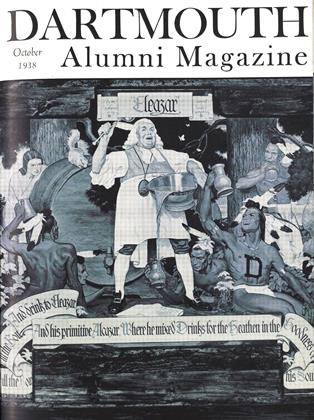A I.IST OF GREAT BOOKS, THE BASIS OF ELECTIVE FOUR-YEAR COURSE
Homer: Iliad and Odyssey. Aeschylus: Oresteia. Herodotus: History. Sophocles: Oedipus Rex. Hippocrates: Selections. Euripides: Medea and Electra. Thucydides: History of the PeloponnesianWars.Old Testament. Aristophanes: Frogs, Clouds, Birds. Aristarchus: On the Distance of the Sunand Moon. Aristoxenus: Harmony. Plato: Meno, Republic, Sophist. Aristotle: Organon and Poetics. Archimedes: Works. Euclid: Elements. Apollonius: Conies. Lucian: True History. Plutarch: Lives. Lucretius: On the Nature of Things. Nicomachus: Introduction to Arithmetic. Ptolemy: Almagest. Virgil: Aeneid. Strabo: Geography. Tacitus: Punic Wars. Cicero: De Officii.s. Horace: Ars Poelica. Ovid: Metamorphoses. Justinian: Institutes. Marcus Aurelius: To Himself.New Testament. Galen: On the Natural Faculties. Plotinus: Enneads. Augustine: De Musica and De Magistro.Song of Roland.Volsunga Saga. Bonaventura: On the Reduction of theArts to Theology. Thomas: Summa Theologica. Dante:' Divine Comedy. Roger Bacon: Opus Maius. Chaucer: Canterbury Tales. Leonardo: Note-books. Erasmus: Golloquies. Rabelais: Gargantua. Copernicus: De Revolutionibus. Machiavelli: The Prince. Harvey: On the Motion of the Heart. Gilbert: On the Magnet. Kepler: Epitome of Astronomy. Galileo: Two New Sciences. Descartes: Geometry. Francis Bacon: Novum Organum. Hobbes: Leviathan. Montaigne: Essays. Cervantes: Don Quixote. Shakespeare: Hamlet, King Lear. Calvin: Institutes. Grotius: The Law of War and Peace. Corneille: Le Cid. Racine: Phedre. Moli£re: Tartuffe. Spinoza: Ethics. . Milton: Paradise Lost. Leibniz: Mathematical Papers. Newton: Principia. Boyle: Skeptical Chymist. Montesquieu: The Spirit of the Laws. Swift: Gulliver's Travels. Locke: Essay Concerning Human Understanding. Voltaire: Candide. Fielding: Tom, Jones. Rousseau: Social Contract. Adam Smith: Wealth of Nations. Hume: Treatise of Human Nature. Gibbon: Decline and Fall of the RomanEmpire.Constitution of the United States.Federalist Papers, Kant: Critique of Pure Reason. Goethe: Faust. Hegel: Science of Logic. Schopenhauer: The World as Will andIdea. Coleridge: Biographia Literia. Bentham: Principles of Morals and ofLegislation. Malthus: Essay on the Principles of Population. Mill: System of Logic. Marx: Capital. Balzac: Pere Goriot. Thackeray: Henry Esmond. Dickens: David Copperfield. Flaubert: Madame Bovary. Dostoevski: Crime and Punishment. Tolstoi: War and Peace. Zola: Experimental Novel. Ibsen: The Doll's House. Dalton: A New System of Chemical Philosophy. Clifford: The Common Sense of the ExactSciences. Fourier: Mathematical Analysis of Heat. Faraday: Experimental Researches intoElectricity. Peacock: Algebra. Lobachevski: Theory of Parallels. Darwin: Origin of Species. Mendel: Papers. Bernard: Introduction to ExperimentalMedicine. Galton: Enquiries into the Human Mindand its Faculties. Joule: Scientific Papers. Maxwell: Electricity and Magnetism. Gauss: Mathematical Papers. Galois: Mathematical Papers. Boole: Laws of Thought. Hamilton: Quaternions. Riemann: The Hypotheses of Geometry. Cantor: Transfnite Numbers. Virchow: Cellular Pathology. Poincare: Science and Hypothesis. Hilbert: Foundations of Geometry. James: Principles of Psychology. Freud: Papers on Hysteria. Russell and Whitehead: Principia Mathematica. Veblen and Young: Projective Geometry.
 View Full Issue
View Full Issue
More From This Issue
-
 Article
ArticleGradus Ad Parnassum
October 1938 -
 Article
ArticlePublications Control?
October 1938 By C. E. W. -
 Class Notes
Class Notes1921*
October 1938 By CHARLES A. STICKNEY JR. -
 Class Notes
Class Notes1913*
October 1938 By WARDE WILKINS -
 Class Notes
Class Notes1929*
October 1938 By F. WILLIAM ANDES -
 Class Notes
Class Notes1937*
October 1938 By DONALD C. MCKINLAY







